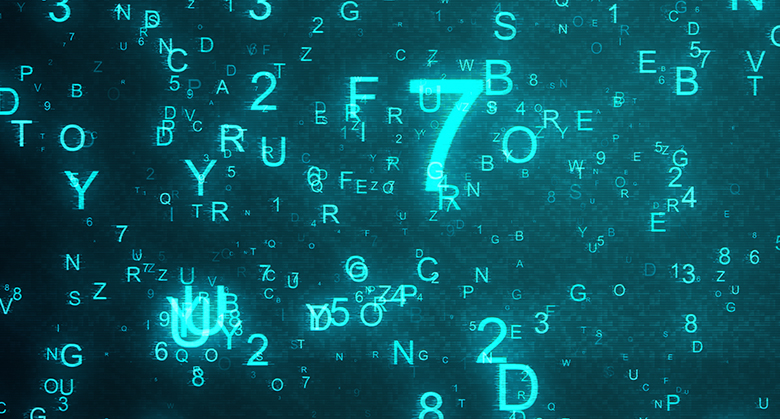
Watering Our Roots
To move forward, you sometimes must first look backward. For the engineers, technical writers, and scientists in Parsons Federal Solutions, research is the necessary key for success in the protection of our nation’s cyber security. Understanding where an organization has come from is inherent in helping to define its future. Many of the Parsons employees in the Federal Solutions directorate are contractors for the National Security Agency, Central Security Service (NSA/CSS). While NSA was founded in 1952, we can trace the code making and code breaking to the Cable and Telegraph Section, U.S. Army cryptographic section of military intelligence (known as MI-8) back to 1917 during the First World War. In 1919, after WWI, the government established the Cipher Bureau (known as the Black Chamber), which focused on private sector cryptology, producing codes for business use and code breaking of diplomatic communications. Jointly funded by the Army and the State Department, the organization worked under the disguise name “New York City Commercial Code Company.” Despite the Chamber’s initial successes, it was shut down in 1929 by the U.S. Secretary of State and went on to become the Signal Intelligence Service (SIS), with the specific orders to intercept and decipher the Axis powers communications during WWII.
Breaking Purple
At the negotiations for the Washington Naval Treaty in 1922, the American Black Chamber broke Japanese diplomatic communications codes. When this information became known publicly, there was considerable pressure to improve Japanese signals security. The Japanese prototype cipher machine was finally completed as the “Type 91 Typewriter” in 1931. The Type 91 was a Roman-letter model and was used by the Ministry of Foreign Affairs as a “Type A Cipher Machine,” codenamed “Red” by American cryptanalysts.
The Japanese completed the next generation “Type 97 Typewriter” in 1937. The Ministry of Foreign Affairs machine was the “Type B Cipher Machine,” codenamed “Purple” by American cryptanalysts. On June 1, 1939, the Japanese introduced what American cryptanalysts called “JN–25.” JN stands for Japanese Navy and this machine eventually consisted of about 33,000 words, phrases, and letters. It was the primary code the Japanese used to send military messages, as opposed to diplomatic messages. As a top U.S. priority, American cryptanalysts decrypted and translated Japan’s 14-part message to its Washington embassy to discontinue negotiations with the United States at 1 p.m., Washington time, on December 7, 1941, before the Japanese Embassy in Washington had done so. At the time this message was sent and decrypted, the Imperial Japanese Navy attacked Pearl Harbor, Hawaii.
Perhaps the most dramatic success that resulted from breaking the Japanese naval code was the Battle of Midway in June 1942. Japanese Commander Admiral Isoroku Yamamoto, best known for his role as the commander of the attack on Pearl Harbor, planned to assemble an aircraft carrier task force and launch a diversionary raid off of the Aleutian Islands. This diversion was planned in order to lure the U.S. Navy to Midway Island and into a decisive battle that would destroy the remainder of the American fleet after the attack on Pearl Harbor. From decrypted messages, the U.S. Naval commanders knew the general plan, and even the timetable. The messages, however, did not say where the Japanese intended to strike; the target was simply designated “AF.” Suspecting that “AF” was Midway Island, the U.S. sent a radio message saying “that Midway was running short of fresh water.” Codebreakers intercepted a Japanese message confirming that “AF was running short of fresh water.” Knowing that the assault was to come at Midway, the U.S. Navy was prepared for the surprise attack. On June 4, 1942, after a fierce three-day battle, U.S. pilots sank all four Japanese aircraft carriers in Yamamoto’s task force, which had been used six months before to attack the U.S. military bases at Pearl Harbor. This effectively turned the tide of the war in the Pacific.
In the wake of the Battle of Midway, codebreakers learned that Admiral Yamamoto was scheduled to inspect a naval base in Bougainville in the Solomon Islands on April 18, 1943. That morning, 18 U.S. P-38 Lightning fighter aircraft, flying from their base at Guadalcanal, intercepted Admiral Yamamoto’s aircraft as it made its approach and Yamamoto lost his life. This was a direct result of a decrypted message.
Admiral Yamamoto was killed in the attack, depriving Japan of one its most experienced and accomplished leaders, ultimately lowering Japanese wartime morale. To maintain the fiction that the fighters had arrived by chance, the air force flew other patrols in the area, both before and after the attack. The Japanese continued use of JN–25, allowing U.S. intelligence to intercept and de-decipher thousands of Japanese messages for the remainder of the war.
Defending The Future
Moving forward 80 years, Parsons Federal Solutions employees are actively supporting the United States Government and the NSA with the most up-to-date tools and resources to support signals intelligence and cyber solutions, intertwining lessons learned and applying them to solutions needed.